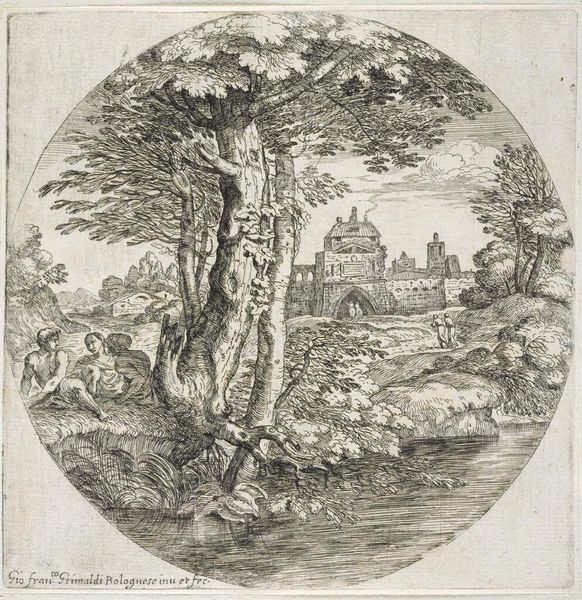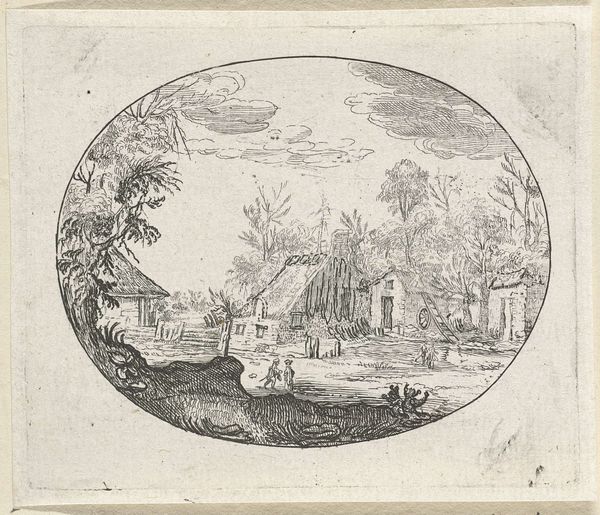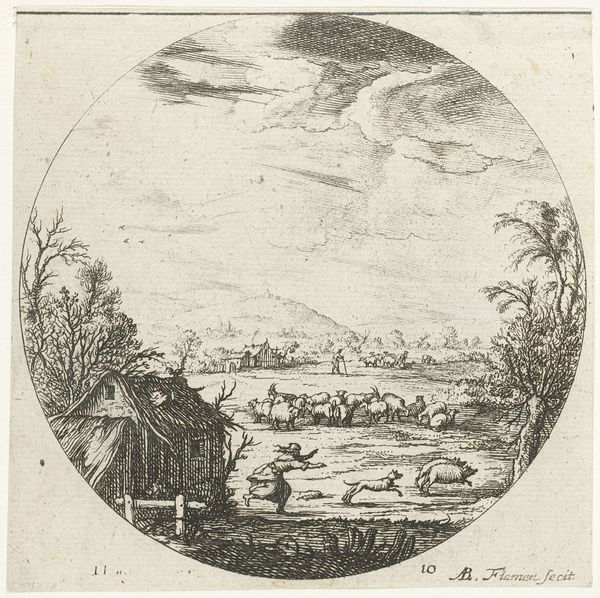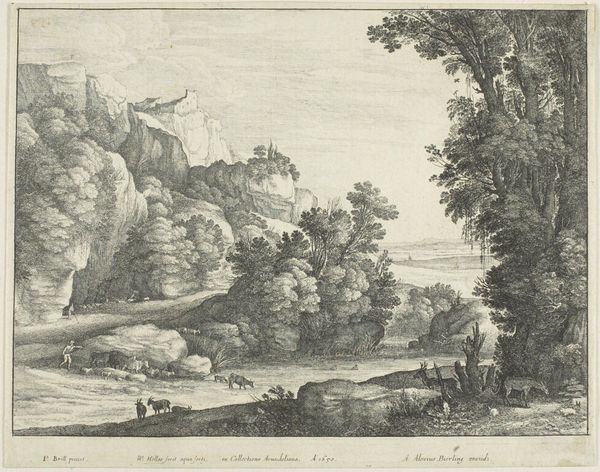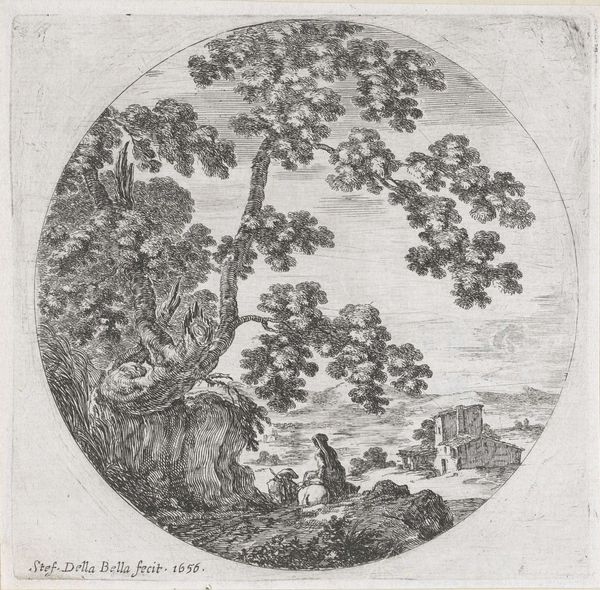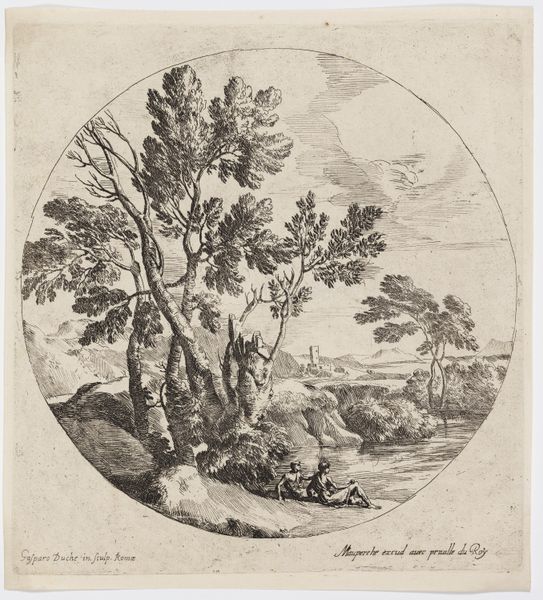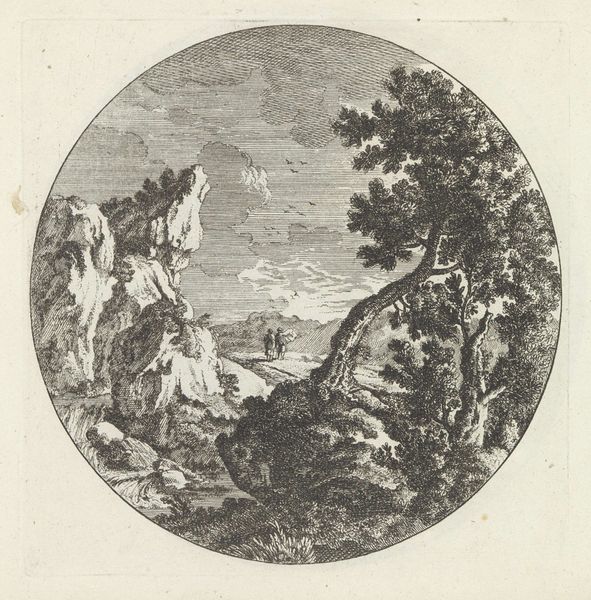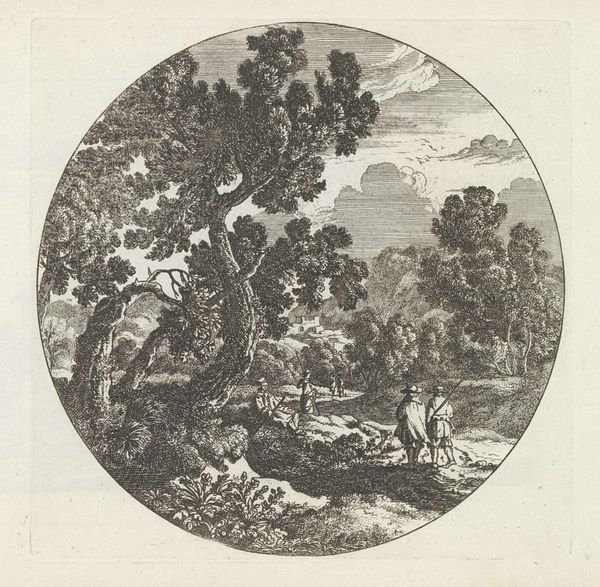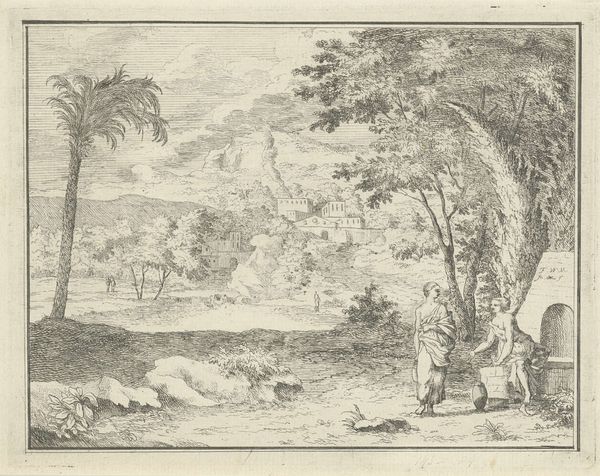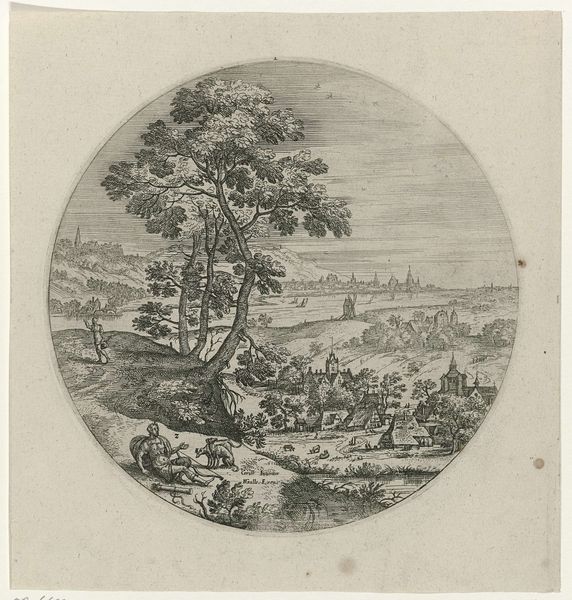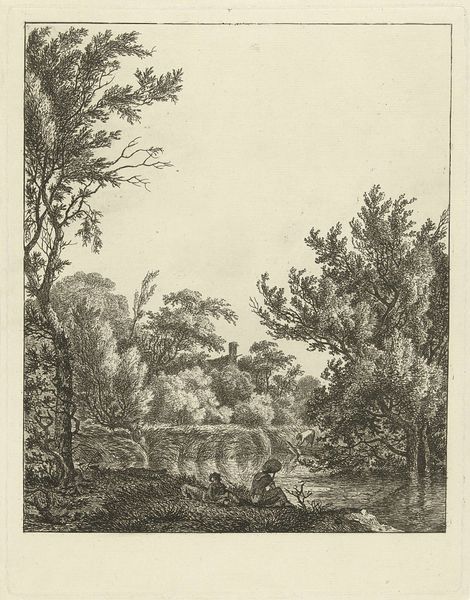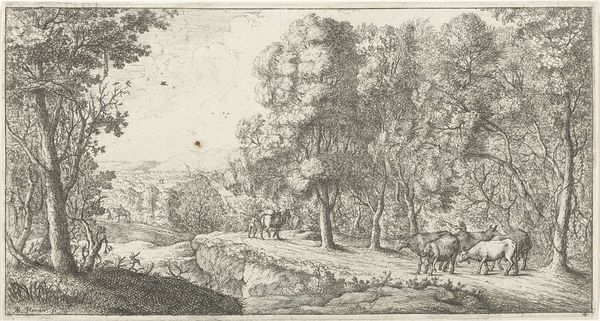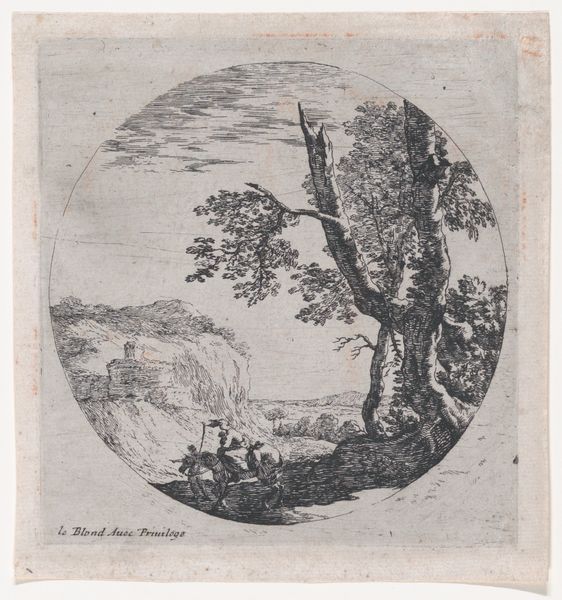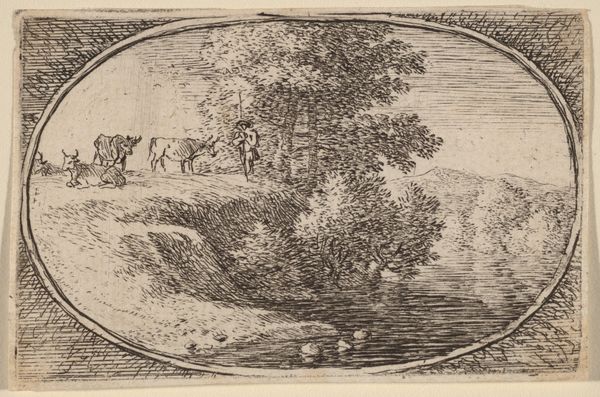
drawing, print, etching
#
drawing
#
baroque
# print
#
pen sketch
#
etching
#
landscape
Dimensions: height 104 mm, width 103 mm
Copyright: Rijks Museum: Open Domain
Editor: We’re looking at “Hertenjacht,” or “Deer Hunt,” by Albert Flamen, created sometime between 1648 and 1672. It’s a print, using etching and other drawing techniques, and it's got a circular frame, which is neat. What catches my eye is the detailed depiction of the hunt itself. What do you see in this piece? Curator: It’s interesting to consider this piece through a materialist lens. How was this print made? The labor involved in etching, the availability of materials like copper plates and etching tools – these things influenced what Flamen could create and who had access to it. Notice how the "high art" subject of a hunt is reproduced and made more widely available through printmaking. Editor: That’s a great point. It democratizes the image, makes it less exclusive. Is there anything about the hunting theme itself that stands out from a materialist point of view? Curator: Hunting, especially during the Baroque period, was deeply tied to notions of power and aristocratic privilege. But here, through the medium of print, Flamen is producing a commodity, meant for consumption, shifting the image from one of pure status to one that can be bought and sold. The tools used, the paper it's printed on – all speak to a burgeoning commercial market. Where do you think these images would be found and by whom? Editor: Probably in more middle-class homes, or used in books. I hadn't really considered how the printmaking process changed its social function. It’s not just art, it's a product! Curator: Precisely. And examining it as a product allows us to see art not as separate from but as intertwined with broader economic and social forces. Thanks for highlighting such interesting qualities in this Flamen print.
Comments
No comments
Be the first to comment and join the conversation on the ultimate creative platform.
